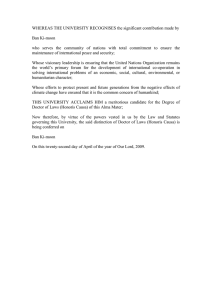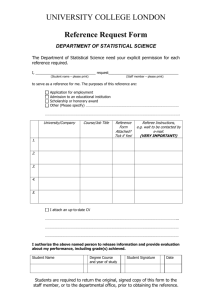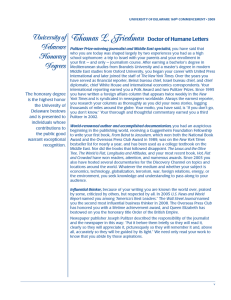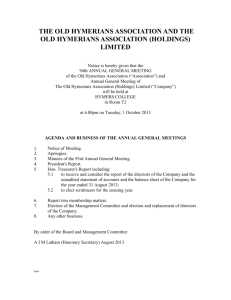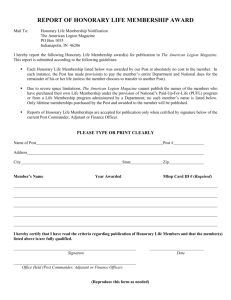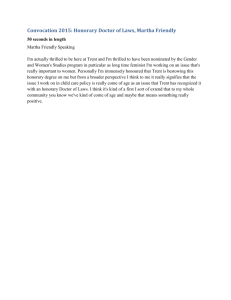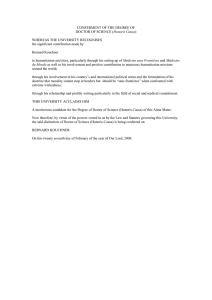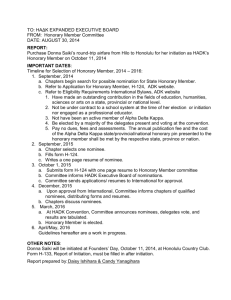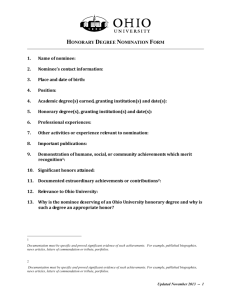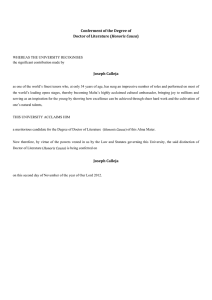University of Delaware Honorary Degree
advertisement
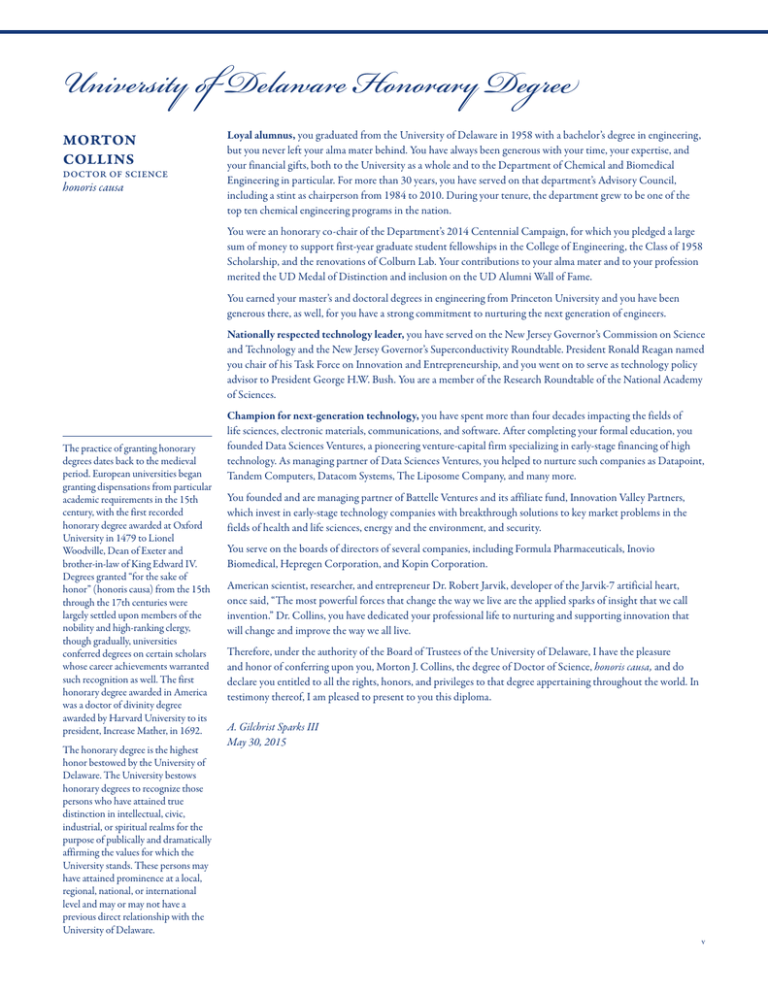
University of Delaware Honorary Degree morton collins doctor of science honoris causa Loyal alumnus, you graduated from the University of Delaware in 1958 with a bachelor’s degree in engineering, but you never left your alma mater behind. You have always been generous with your time, your expertise, and your financial gifts, both to the University as a whole and to the Department of Chemical and Biomedical Engineering in particular. For more than 30 years, you have served on that department’s Advisory Council, including a stint as chairperson from 1984 to 2010. During your tenure, the department grew to be one of the top ten chemical engineering programs in the nation. You were an honorary co-chair of the Department’s 2014 Centennial Campaign, for which you pledged a large sum of money to support first-year graduate student fellowships in the College of Engineering, the Class of 1958 Scholarship, and the renovations of Colburn Lab. Your contributions to your alma mater and to your profession merited the UD Medal of Distinction and inclusion on the UD Alumni Wall of Fame. You earned your master’s and doctoral degrees in engineering from Princeton University and you have been generous there, as well, for you have a strong commitment to nurturing the next generation of engineers. Nationally respected technology leader, you have served on the New Jersey Governor’s Commission on Science and Technology and the New Jersey Governor’s Superconductivity Roundtable. President Ronald Reagan named you chair of his Task Force on Innovation and Entrepreneurship, and you went on to serve as technology policy advisor to President George H.W. Bush. You are a member of the Research Roundtable of the National Academy of Sciences. The practice of granting honorary degrees dates back to the medieval period. European universities began granting dispensations from particular academic requirements in the 15th century, with the first recorded honorary degree awarded at Oxford University in 1479 to Lionel Woodville, Dean of Exeter and brother-in-law of King Edward IV. Degrees granted “for the sake of honor” (honoris causa) from the 15th through the 17th centuries were largely settled upon members of the nobility and high-ranking clergy, though gradually, universities conferred degrees on certain scholars whose career achievements warranted such recognition as well. The first honorary degree awarded in America was a doctor of divinity degree awarded by Harvard University to its president, Increase Mather, in 1692. The honorary degree is the highest honor bestowed by the University of Delaware. The University bestows honorary degrees to recognize those persons who have attained true distinction in intellectual, civic, industrial, or spiritual realms for the purpose of publically and dramatically affirming the values for which the University stands. These persons may have attained prominence at a local, regional, national, or international level and may or may not have a previous direct relationship with the University of Delaware. Champion for next-generation technology, you have spent more than four decades impacting the fields of life sciences, electronic materials, communications, and software. After completing your formal education, you founded Data Sciences Ventures, a pioneering venture-capital firm specializing in early-stage financing of high technology. As managing partner of Data Sciences Ventures, you helped to nurture such companies as Datapoint, Tandem Computers, Datacom Systems, The Liposome Company, and many more. You founded and are managing partner of Battelle Ventures and its affiliate fund, Innovation Valley Partners, which invest in early-stage technology companies with breakthrough solutions to key market problems in the fields of health and life sciences, energy and the environment, and security. You serve on the boards of directors of several companies, including Formula Pharmaceuticals, Inovio Biomedical, Hepregen Corporation, and Kopin Corporation. American scientist, researcher, and entrepreneur Dr. Robert Jarvik, developer of the Jarvik-7 artificial heart, once said, “The most powerful forces that change the way we live are the applied sparks of insight that we call invention.” Dr. Collins, you have dedicated your professional life to nurturing and supporting innovation that will change and improve the way we all live. Therefore, under the authority of the Board of Trustees of the University of Delaware, I have the pleasure and honor of conferring upon you, Morton J. Collins, the degree of Doctor of Science, honoris causa, and do declare you entitled to all the rights, honors, and privileges to that degree appertaining throughout the world. In testimony thereof, I am pleased to present to you this diploma. A. Gilchrist Sparks III May 30, 2015 v
